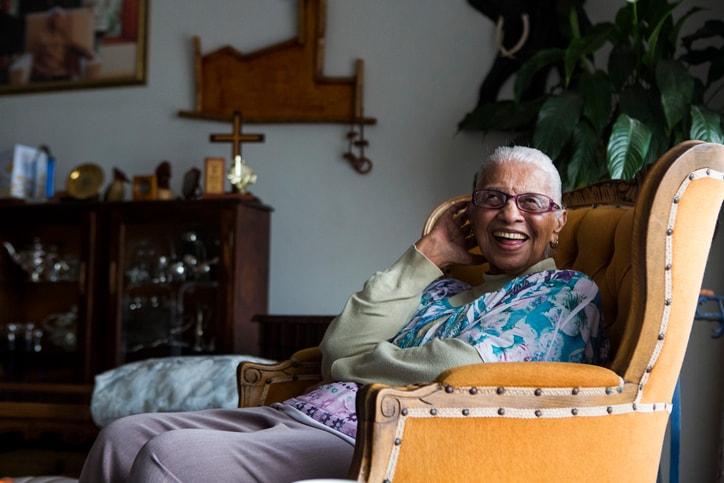Health trackers seem to be all the rage these days. But could the wearable technology be more than just a fitness fad? Patricia Lauder thinks so and credits her FitBit with saving her life.
A few months back, Lauder, a recent retiree, wasn’t feeling well. She suspected that her sinus infection may have morphed into pneumonia, but a visit to the doctor quickly ruled that out, according to CBS News. In the days following, she noticed her heart rate, as monitored by her FitBit, was on the rise — reaching 140 beats per minute.
That’s when the 73-year-old Connecticut resident called an ambulance and, upon arrival at the hospital, doctors were able to diagnosis her increasingly rapid heartbeat.
“When I got to the hospital, they did a series of tests and found that I had blood clots in both lungs,” Lauder told CNN. “My heart had enlarged to about 65 percent beyond its [normal] capacity.”
Lauder said that without her FitBit to track her heart rate, she isn’t sure if she would have been made aware of the symptoms as soon as she was.

“If I didn’t have a Fitbit on my wrist, I would never have known that my heart rate was getting dangerously high,” she told UConn Today. “And I might not be here to tell my story.”
Dr. JuYong Lee, director of vascular and endovascular medicine at UConn Health Calhoun Cardiology Center, treated Lauder and administered a medicine that made the clots disappear within 24 hours. He told CNN that the fitness tracker likely helped save her life.
“I think the Fitbit actually helped her decide whether or not this was a serious condition at that time,” Lee told CNN. “This condition is very critical, and she may have actually died if she had not sought medical attention.”





